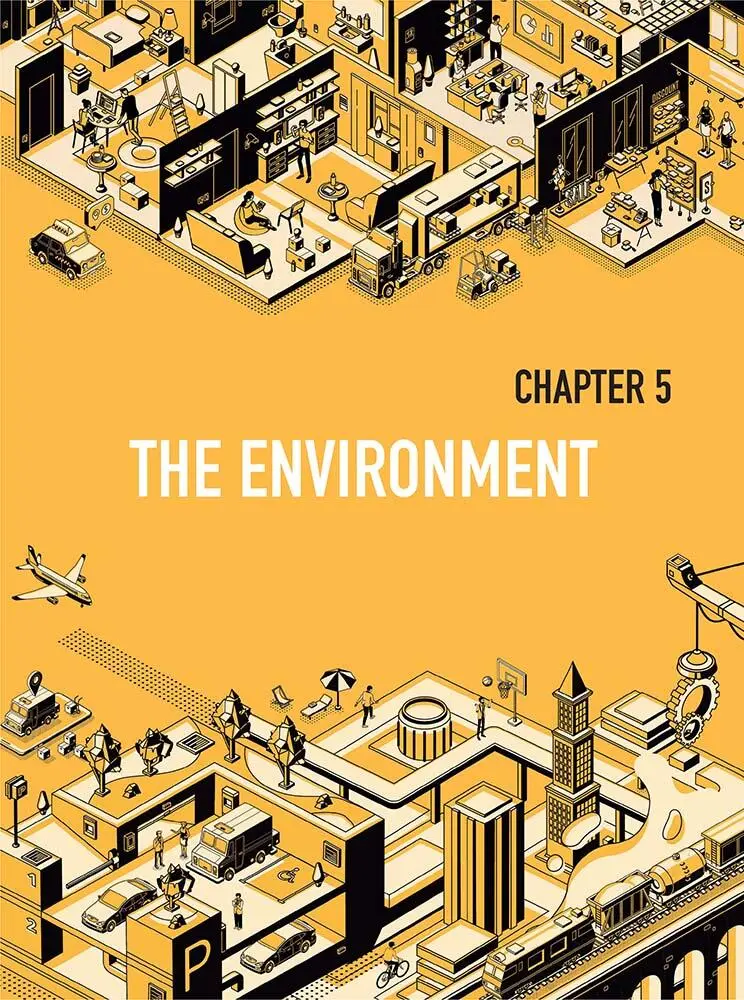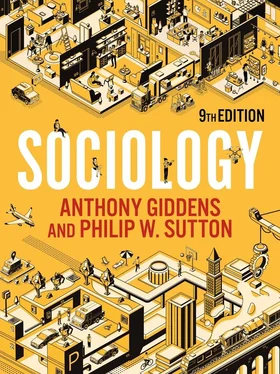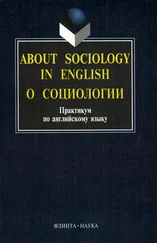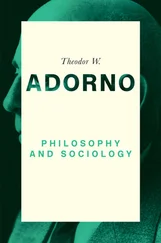BBC World Service on globalization – some basic information on aspects of ‘global society’: www.bbc.co.uk/worldservice/programmes/globalisation/

1 Nature, environment and society
2 From nature to environment
3 Sociology and the environment
4 Theorizing the society–nature nexus
5 Environmental issues
6 Global warming
7 Air and water pollution
8 Solid waste and recycling
9 Food shortages and biotechnology
10 The environment in sociological theory
11 Living in the global ‘risk society’
12 Consumerism and environmental damage
13 Limits to growth and sustainable development
14 Ecological modernization
15 Environmental justice and ecological citizenship
16 An Anthropocene era?
17 Chapter review
18 Research in practice
19 Thinking it through
20 Society in the arts
21 Further reading
22 Internet links

Environmental campaigners call on governments to declare a ‘climate emergency’ and to take radical action to reduce CO 2emissions to combat global warming.
In April 2019, key roads in the centre of London were effectively blocked for several days by activists from an environmental group, Extinction Rebellion (XR). This was part of an international protest across at least thirty-three countries, including Australia, India, the USA and a number of European states. The campaigners aimed to raise awareness of the seriousness of climate change and to push governments to do much more to bring down carbon dioxide emissions more quickly. The London protest had an immediate impact. On 1 May, the UK Parliament passed a motion to declare an ‘environment and climate emergency’, becoming the first to do so. But what is the emergency?
The XR protest made direct reference to a special report by the Intergovernmental Panel on Climate Change, an international group of scientists monitoring climate change (IPCC 2019). This report said that the risks posed by climate change for both natural ecosystems and human societies would be more manageable if global warming did not exceed 1.5ºC above pre-industrial levels. On present trends that 1.5ºC limit would be reached between 2030 and 2052, but it could be stabilized at that level if global carbon emissions from human activities were radically reduced to ‘net zero’ as soon as possible (ibid.: 6). The XR protests castigated governments for dragging their feet on achieving this goal. For instance, the UK, France and New Zealand have a target to reach zero net CO 2emissions by 2050, Scotland and Sweden by 2045, and Iceland by 2040 (Energy and Climate Intelligence Unit 2018). And though all of these targets are compatible with the international climate agreement made in Paris in 2015, which set 2050 as the net zero target date, campaigners want to see faster progress.
Climate change or global warming (sometimes called global heating) has been widely described as the defining issue of our time, with young people becoming increasingly active in campaigns to tackle the problem. Yet, despite notable exceptions, sociology can also be said to have ‘dragged its feet’, failing to integrate environmental issues such as this into the mainstream of the discipline. Arguably the main reason for this is that ‘the environment’ appears to be something that natural scientists, rather than social scientists, are trained to deal with. What do sociologists know about the changing climate, oceanic pollution or biodiversity loss?
Although this point seems pertinent, a moment’s reflection tells us that, if climate change is largely anthropogenic or ‘human caused’, then the discipline that focuses on the human societies and economic regimes that bring it about is sociology. Similarly, plastic pollution in the world’s rivers and oceans and the destruction of habitat that leads to large-scale species extinctions are the consequence of the material ways of life that human societies have created. Indeed, without sociological knowledge of capitalist economies, consumer culture, collective action and behavioural change, it is unlikely that we can reach a realistic assessment of which mitigation strategies and government initiatives are likely to be successful in solving environmental problems.
We will return to global warming and relevant sociological theories and perspectives later in the chapter. But we must start with shifting ideas of ‘nature’ and ‘environment’ and what constitutes an ‘environmental issue’ before outlining sociological approaches to their study. From here we discuss some important environmental issues and sociological theories of consumerism and the risk society, together with proposals aimed at dealing with environmental dilemmas such as sustainable development and ecological modernization. The chapter ends with an investigation into how justice and citizenship may be extended to take in natural environments, and we look ahead to the future of society–environment relations.
Nature, environment and society
From nature to environment
Environmental issues always involve nature in some way, but ‘nature’ is not a simple word with a single meaning. In fact, dictionary definitions describe around twelve distinct meanings of the word. Raymond Williams (1987) says that nature is one of the most complex and difficult words in the English language because its dominant meaning has changed often, along with the development of societies.
‘Nature’ can mean something that is essential to a person, an animal or a thing. Why do some birds build their nests at the same time every year, for instance? We may be told that this is instinctive behaviour and an essential part of the ‘nature’ of the birds. In fourteenthcentury Europe, however, a new dominant meaning began to emerge. Nature came to be seen as a series of forces that directed the world and ultimately explained why things happen. For example, even today many people consult astrological charts, looking for their birth-date-based ‘star sign’ and the life guidance it can offer. When they do this, they implicitly draw on this same idea of ‘natural forces’ – in this case, the movement of stars and planets – directing human affairs.
By the nineteenth century, the dominant meaning of ‘nature’ had changed again. This time nature was seen as the whole non-human material world rather than as a series of forces. The natural world was a world full of natural things : animals, fields, mountains, and much more. For instance, there was a trend towards looking at ‘scenery’ as landscapes and pictorials, with nature literally framed for our appreciation and enjoyment. Similarly, eighteenth- and nineteenth-century naturalists collected and classified natural ‘things’, creating plant and animal taxonomies that are still in use today.
Two major and related causes of this latest change were industrialization, which shifted people away from working the land, and urbanization, which led to larger human settlements and new living environments largely divorced from working the land (Thomas 1984). Nature was now seen as an obstacle that society had to tame and master in order to make progress. Humans can now fly (in planes), cross oceans (in ships) and even orbit the planet (in spacecraft) despite their having no innate ability to do these things. Catton and Dunlap (1978) argue that the technological advances of the industrial age produced an ideology of ‘human exemptionalism’ – the widely accepted idea that, unlike all other animals, the human species was practically exempt and could overcome natural laws.
Читать дальше














